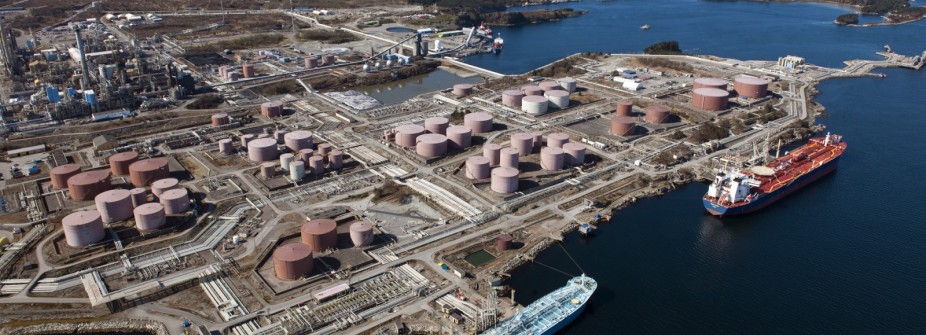Subject areas in Petrad’s programmes
Following is an overview of the scope of subjects covered by Petrad’s programmes. We can be in a position to extend the scope to related subjects if there is a clear need for it and consistent with our mission.
The subject areas are grouped as three broad areas:
- Finding and producing petroleum: Value chain activities;
- Managing the petroleum sector: Decisions and capabilities;
- The petroleum sector context: Nature, technology, society and markets.
1. Finding and producing petroleum
Petroleum resources pass through a life cycle of being found, developed, produced and finally abandoned. Petrad covers the activities and business processes needed to exploit petroleum successfully through its life cycle. Our courses provide an overview of these subjects, aimed at providing a good understanding of overall implications for governance and managerial purposes, but without the level of detail that may be provided by specialist courses.
Exploration: Exploration for oil and gas is essentially a process of acquiring information on the underground and applying this information in interpretation and decision processes aimed at establishing petroleum reserves. Topics include:
- Basic petroleum geology;
- Exploration data acquisition and analysis:
- Risk and probability analysis;
- Basin and prospect evaluation;
- Licencing and exploration strategy;
- Exploration economics and decision support;
- Resource classification and reporting;
- Data management.
Development: Developing a petroleum resource for production is usually a complex, multi-billion US dollar undertaking. It must be planned thoroughly before development can commence, particularly if the resource is located offshore or in another challenging environment. Petrad programmes cover petroleum development planning based on a process framework widely used in the industry, leading to the field development plan as the key decision instrument involving the licenced oil firms, national authorities and other stakeholders. We cover the most important issues related to field development planning:
- Reservoir depletion strategy;
- Reservoir management including advanced techniques for optimal recovery;
- Drilling and well construction;
- Processing of well streams to deliverable products;
- Pipelines and flow assurance;
- Subsea and platform technologies for offshore production;
- Support facilities and logistics for petroleum installations;
- Long term sales and transportation arrangements (particularly for natural gas);
- Petroleum development in difficult environments;
- Safety and risk management;
- Environmental management of petroleum developments;
- Cost estimation;
- Management of complex projects;
- Procurement;
- The field development plan and related decision processes.
Production and abandonment: Petroleum resources must be produced safely and without harm to the environment. This is an important challenge since petroleum operations involve substances which are potentially explosive and polluting, and because operations involve heavy equipment often in challenging environments. Production operations should aim for optimal recovery of oil and gas, production regularity and cost effectiveness. Towards the end of the field productive life, remaining operations must be optimised, wells safely plugged and the field installations removed with minimal remaining footprint in the environment. Petrad programmes can cover the main issues related to the production and abandonment stages of the resource life cycle:
- Operational health, safety and environmental management;
- Reservoir management, including improved and enhanced oil recovery;
- Integrated operations and modern IT support;
- Maintenance and asset integrity;
- Oil and gas marketing, terminal and shipping operations;
- Working conditions, employee and union relations;
- Tail-end optimisation of field production;
- Decommissioning operations; legal and financial provisions for decommissioning.
2. Managing the petroleum sector
Petroleum operations must be managed on behalf of the nation, both because the resources usually belong to the nation in the first place and because their exploitation can have great implications for society. Petroleum operations are also managed commercially by those who put investment funds and other resources at risk in order to find and produce petroleum, and who are directly responsible for operations. The interaction between the national and the commercial management of petroleum resources is a key feature of the industry.
The national framework for petroleum resource management: Nations which have (or hope to find) petroleum resources, must make some important choices and establish a national framework for their management. Petrad programmes cover the following aspects of this:
- Petroleum policy;
- Energy sector policy;
- International legislative framework for asserting rights over subsoil resources;
- Petroleum legislation and regulations;
- Institutions for regulating the petroleum sector: Responsibilities for managing resources, safety, the environment and revenues;
- Implications of establishing a national petroleum company;
- Licencing regime and process: Rights and obligations for firms to exploit petroleum;
- Fiscal regime: Sharing value between State and firms;
- Promoting the country for petroleum investments;
- Environmental assessments and environmental management;
- Strategic sector planning;
- Government involvement in field and infrastructure planning;
- Providing for joint use of pipelines and infrastructure;
- Reporting and monitoring petroleum operations.
Governance for securing the benefits: Petroleum can cause damages as well as benefits to a nation. In some cases it is not evident that the benefits have exceeded the damages. Petrad programmes address this challenge from different perspectives:
- Macro-economic impacts of petroleum operations in a country;
- “Dutch disease” and similar risks;
- Requirements for proper revenue management;
- Projecting the impacts of petroleum on national finances;
- Sovereign wealth funds;
- Effective application of petroleum revenues for long term national benefits;
- Verifying the values: Challenges of auditing revenues and costs;
- Corruption: Causes and mitigation;
- The Extractive Industries Transparency Initiative (EITI);
- Other international initiatives for extractive resource management;
- Norway’s experience in managing the petroleum sector and revenues.
Petroleum economics: The petroleum sector tends to involve a lot of money, and financial benefits are a key driver for commercial as well as national stakeholders. Economic computations and analysis are made for a number of different purposes, including decision support, fiscal purposes and accounting requirements. Insights in economics are useful for anyone engaged in the sector. Petrad programmes can cover several aspects of petroleum economics:
- Project economics based on discounted cash flow analysis;
- Understanding petroleum company financial statements and strategic implications;
- Decisions under uncertainty;
- Exploration economics and decision support;
- Development economics and decision support;
- Practical use of spreadsheets for economic decision analysis;
- Petroleum fiscal systems: Sharing value through taxes and contracts
- Fiscal design considerations;
- Cost estimation and budgeting;
- Accounting and cost control;
- Petroleum and the national economy.
Capabilities for managing the sector: Beyond understanding the various topical issues involved, effective management of the sector rests on the capabilities of individual and institutions. Petrad programmes address a number of aspects of this:
- Training need assessments;
- Capability development as a systematic endeavour;
- Organisational development;
- Effective team work in interdisciplinary and intercultural settings;
- Effective presentations;
- Conducting formal meetings;
- Negotiations;
- Structured analysis and decision processes.
3. The petroleum sector context
There are circumstances surrounding the upstream petroleum sector influencing what it can and should do.
Petroleum, development and environment: Global challenges. Access to modern forms of energy is an essential contributor to general development around the world. Renewable energies have become increasingly relevant, but most forecasters expect hydrocarbons to remain dominant in the global energy system for decades to come. This raises a serious concern for the global climate. Our programmes frequently include sessions where these issues are discussed.
The global oil market and trade: The oil market is probably the most important and most discussed market for any product in the world. The viability of petroleum developments depends crucially on the oil price, which has a tendency to move sharply in ways which no-one seems able to predict reliably. The oil market has its particular features in terms of how oil is sold and bought, the formation of prices and the role of petroleum exchanges.
Utilisation and international trade in natural gas: Trade in natural gas is generally quite different from trade in oil, in being dominated by very long term agreements. There are important reasons for this, relating to the physical characteristics and how gas is used. Gas can be a very useful and comparatively clean source of energy, but is in many cases wasted because of an inability to make good use of associated gas. Petrad can assist in reviewing the opportunities and challenges of utilising natural gas.
The natural gas liquids (NGLs): LPG, condensates and ethane usually arise from gas processing, and can be significant sources of revenues. They have a wide range of uses, distinct markets and logistics.
Oil and gas as part of national energy supply: Oil and gas are often exported from the producing country, but they can also be important contributions to domestic energy supply of a nation. Governments sometimes need to make strategic choices on national energy sector development, where gas and oil should be considered in the context of all energy sources, infrastructure development and environmental consequences.
Industries based on oil and gas: Oil, gas and natural gas liquids can be used as feedstock for certain industries, notably oil refineries, petrochemicals and fertiliser manufacturing. These can add value to the oil and gas produced, but they also tend to be industries of fierce international competition and sometimes depressed margins.
Local content and national capacity building: There is a desire in most petroleum producing nations to engage its own citizens as workers and its businesses as suppliers to the petroleum sector. Countries have tried different approaches to promoting this, including mandatory preferences as well as capacity building, with mixed results. Many inputs to petroleum operations are highly specialised and have global applications, and therefore are usually supplied across international borders. Petrad can assist in reviewing the opportunities and challenges of developing an effective strategy for local content.


